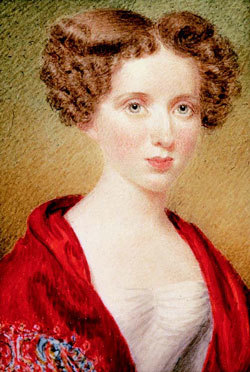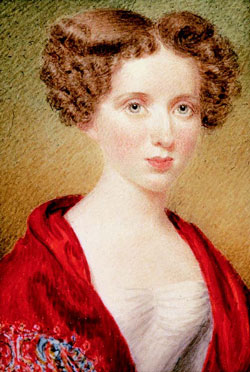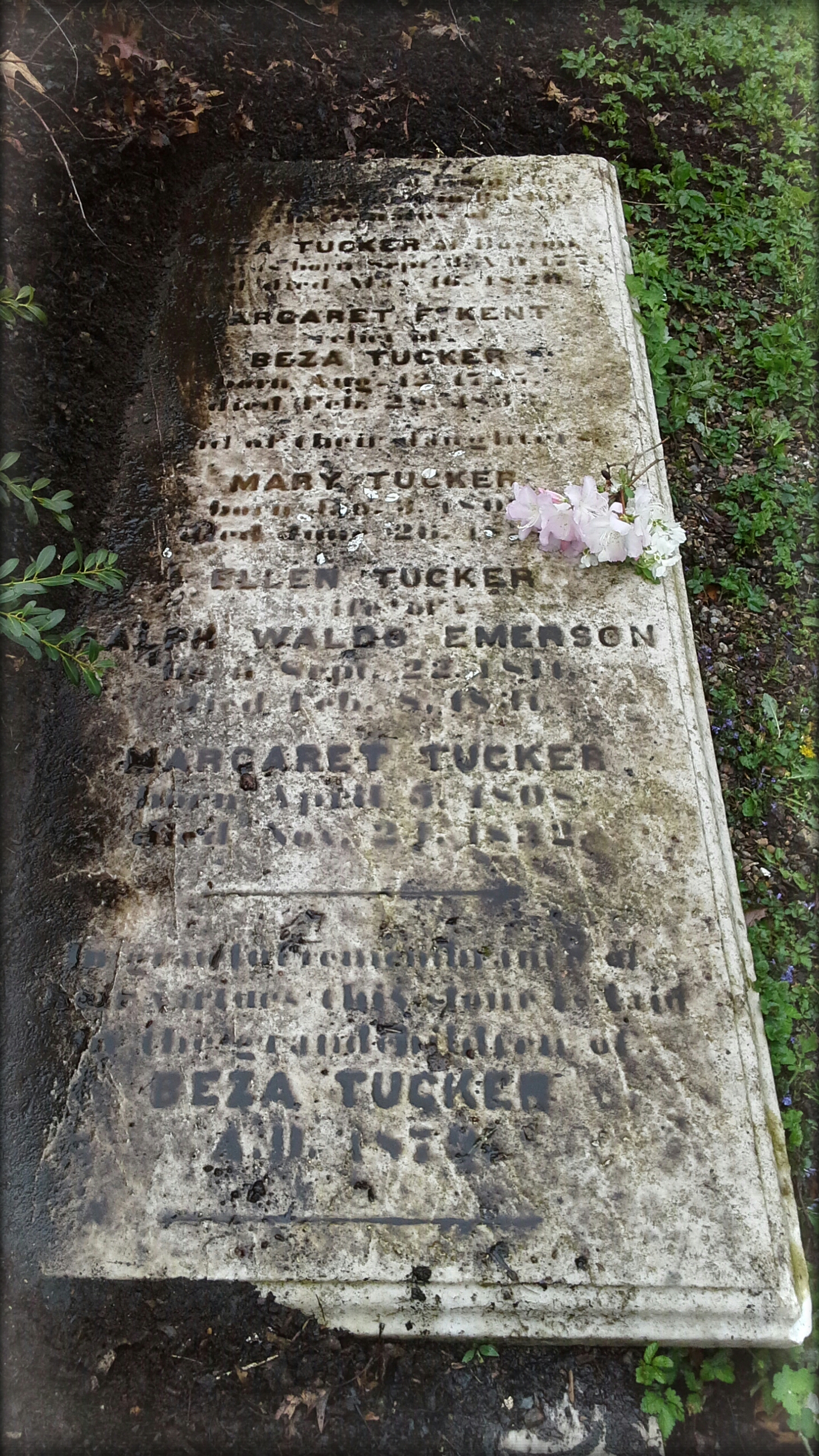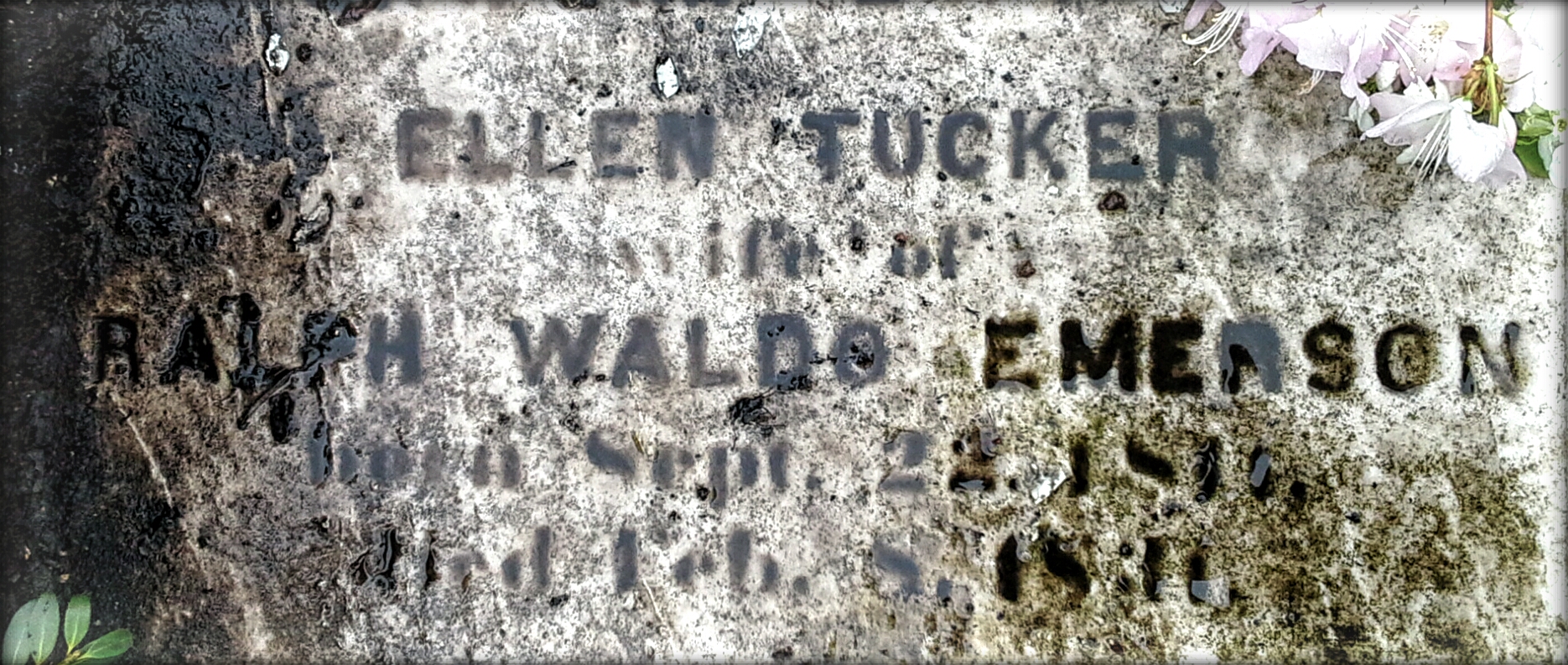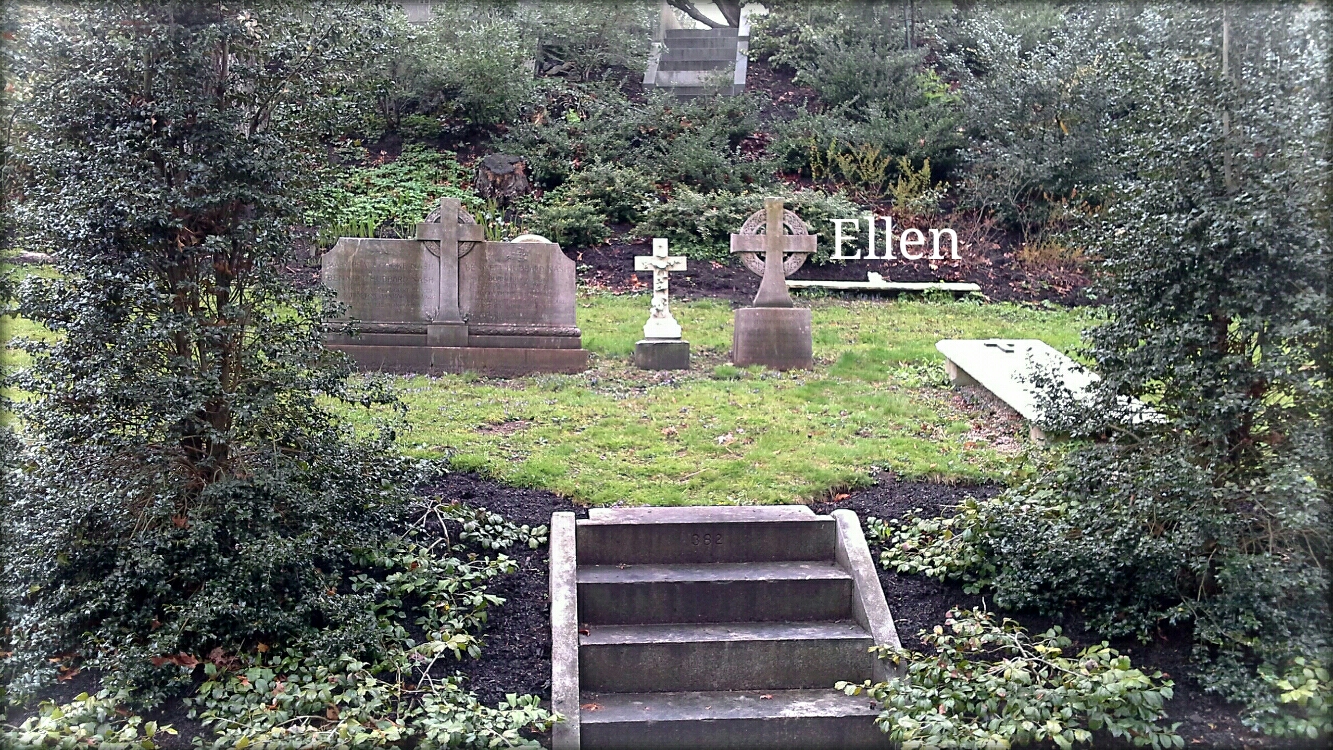Emerson wrote in his journal:
“Oh, Ellen, I do dearly love you. “I have now been four days engaged to Ellen Louisa Tucker. Will my Father in Heaven regard us with kindness, and as he hath, as we trust, made us for each other, will he be pleased to strengthen and purify and prosper and eternize our affection.”
Ellen had suffered from tuberculosis for some time, and had a bad spell not long after their marriage. The couple moved to Boston and had lots of hope for a nice future together. Emerson had accepted the offer to become a minister at the Second Church of Boston at a handsome salary of $1,800 per year. Ellen would be under her mother-in-law's care. The family hoped she would get better, but soon it was obvious that wasn't going to happen. She grew worse during the winter of 1830/1831.
Ellen's brother-in-law Charles wrote to his aunt:
Ellen is still with us, though her spirit seems winged for its flights. She suffered a great deal of distress last night, but today (with the exception of perhaps to or three times a half-hour) she has been in less pain -- sometimes torpid under the influence of her opiates, but at others serene and fully conscious. She spoke this afternoon very sweetly of her readiness to die -- that she told you she should not probably live through the winter -- tho' she did not know that she would have been called so soon -- she saw no reason why her friends should be distressed, it was better she should go first, and prepare the way -- She asked Waldo, if he had strength, to read her a few verses of Scripture -- and he read a portion of the XIVth chapter of John -- Waldo is bowed down under the affliction, yet he says t'is like seeing an angel go to heaven".
Ellen passed away on a cold February day at 9:00 am. The couple was married for about 18 months and Ellen was 19 years old. Her last words were "I have not forgot the peace and joy".
Emerson was devastated by her death and visited her grave in Roxbury daily. He wrote to her in his journal as if she were alive. On March 29, 1832 he even opened her tomb to view her remains.
As Robert D. Richardson wrote in his book "Emerson: The Mind on Fire":
"Opening the coffin was not a grisly gothic gesture, not just the wild aberration of an unhinged lover… Emerson opened not only the tomb or family vault but the coffin itself. The act was essential Emerson. He had to see for himself. Some part of him was not able to believe she was dead. He was still writing to her in his journals as though she was alive. Perhaps the very deadness of the body would help a belief in the life of the spirit… We do not know exactly what moved Emerson on this occasion, but we do know that he had a powerful craving for direct, personal, unmediated experience".
Emerson would travel Europe for a while and eventually remarry, naming his first daughter Ellen Tucker Emerson in honor of his first wife. A miniature of her and her rocking chair remained in his home for the rest of his life.
Ellen's death was influential in Emerson's conversion to transcendentalism. He resigned from his pastoral position in Boston in 1832.
Ellen was entombed beside her father on the grounds of the Auchmuty House in Roxbury from 1831 until she was moved to Mt. Auburn in 1878.
Emerson wrote in his journal:
“Oh, Ellen, I do dearly love you. “I have now been four days engaged to Ellen Louisa Tucker. Will my Father in Heaven regard us with kindness, and as he hath, as we trust, made us for each other, will he be pleased to strengthen and purify and prosper and eternize our affection.”
Ellen had suffered from tuberculosis for some time, and had a bad spell not long after their marriage. The couple moved to Boston and had lots of hope for a nice future together. Emerson had accepted the offer to become a minister at the Second Church of Boston at a handsome salary of $1,800 per year. Ellen would be under her mother-in-law's care. The family hoped she would get better, but soon it was obvious that wasn't going to happen. She grew worse during the winter of 1830/1831.
Ellen's brother-in-law Charles wrote to his aunt:
Ellen is still with us, though her spirit seems winged for its flights. She suffered a great deal of distress last night, but today (with the exception of perhaps to or three times a half-hour) she has been in less pain -- sometimes torpid under the influence of her opiates, but at others serene and fully conscious. She spoke this afternoon very sweetly of her readiness to die -- that she told you she should not probably live through the winter -- tho' she did not know that she would have been called so soon -- she saw no reason why her friends should be distressed, it was better she should go first, and prepare the way -- She asked Waldo, if he had strength, to read her a few verses of Scripture -- and he read a portion of the XIVth chapter of John -- Waldo is bowed down under the affliction, yet he says t'is like seeing an angel go to heaven".
Ellen passed away on a cold February day at 9:00 am. The couple was married for about 18 months and Ellen was 19 years old. Her last words were "I have not forgot the peace and joy".
Emerson was devastated by her death and visited her grave in Roxbury daily. He wrote to her in his journal as if she were alive. On March 29, 1832 he even opened her tomb to view her remains.
As Robert D. Richardson wrote in his book "Emerson: The Mind on Fire":
"Opening the coffin was not a grisly gothic gesture, not just the wild aberration of an unhinged lover… Emerson opened not only the tomb or family vault but the coffin itself. The act was essential Emerson. He had to see for himself. Some part of him was not able to believe she was dead. He was still writing to her in his journals as though she was alive. Perhaps the very deadness of the body would help a belief in the life of the spirit… We do not know exactly what moved Emerson on this occasion, but we do know that he had a powerful craving for direct, personal, unmediated experience".
Emerson would travel Europe for a while and eventually remarry, naming his first daughter Ellen Tucker Emerson in honor of his first wife. A miniature of her and her rocking chair remained in his home for the rest of his life.
Ellen's death was influential in Emerson's conversion to transcendentalism. He resigned from his pastoral position in Boston in 1832.
Ellen was entombed beside her father on the grounds of the Auchmuty House in Roxbury from 1831 until she was moved to Mt. Auburn in 1878.
Family Members
Advertisement
Advertisement
